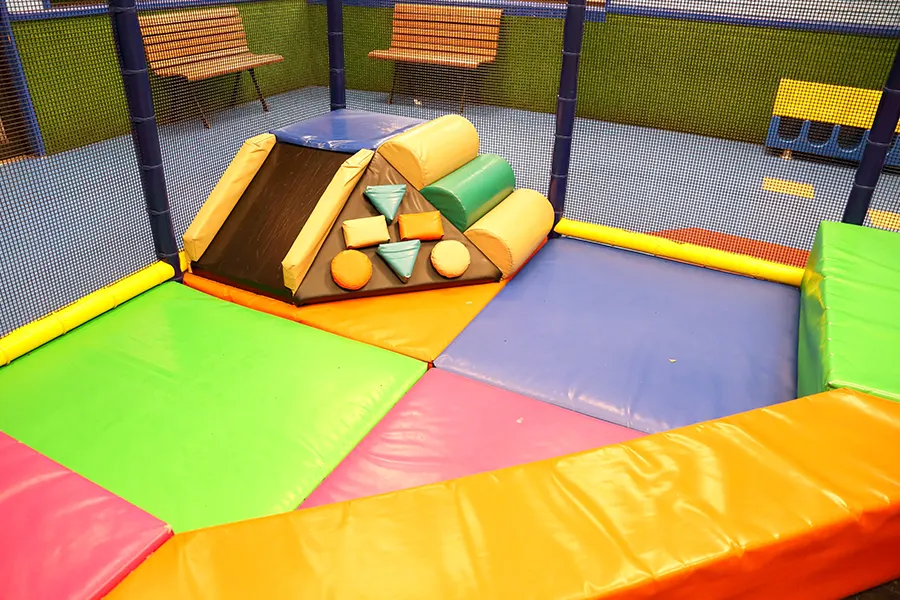
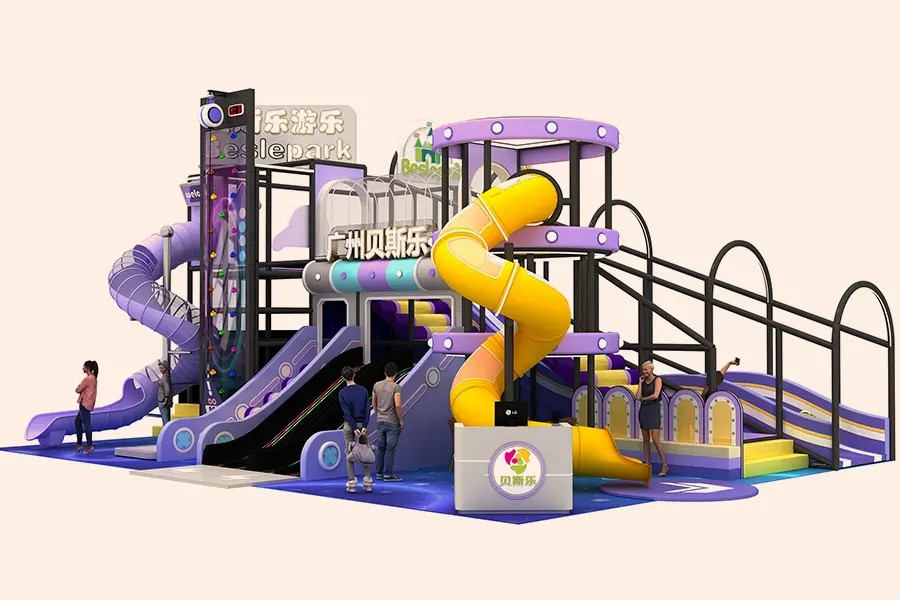
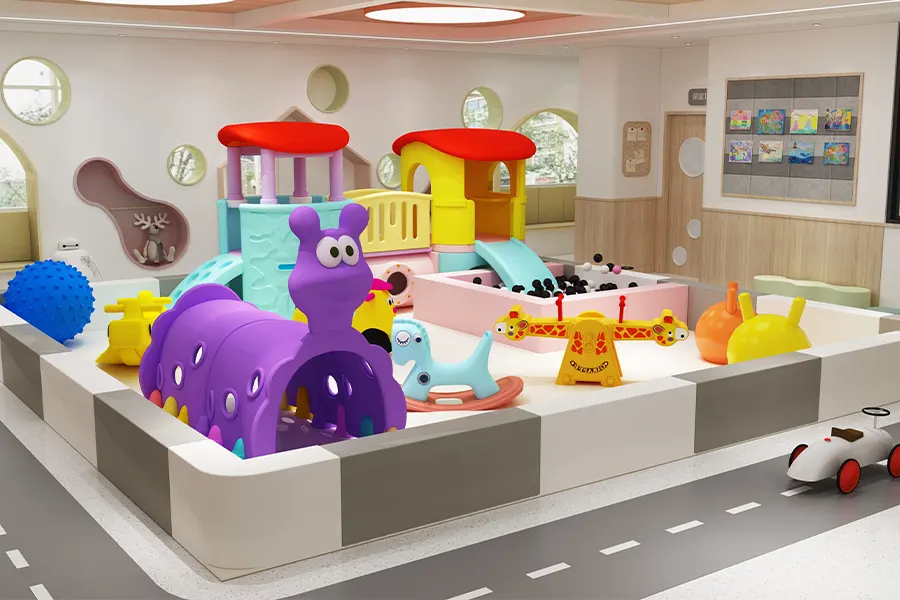
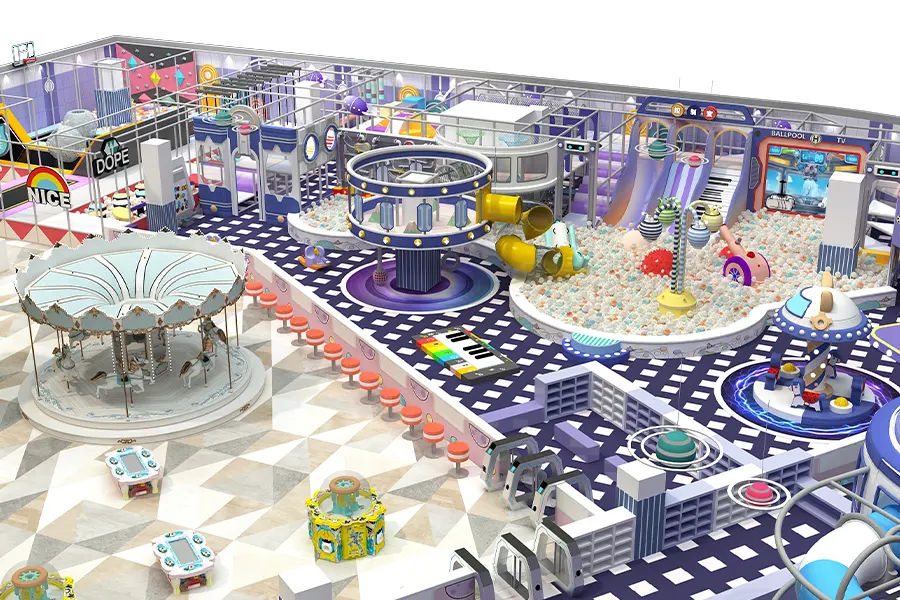
See Our Successful Projects
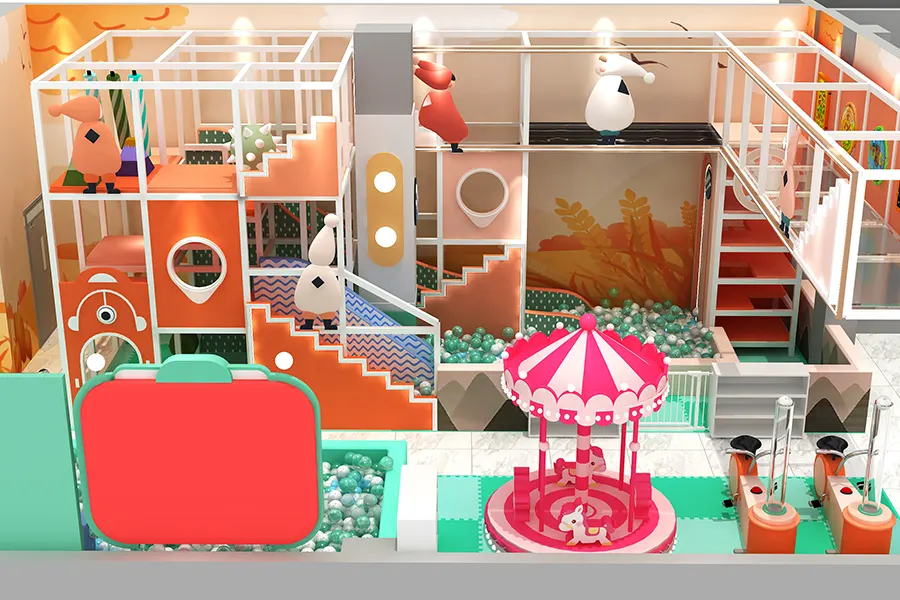

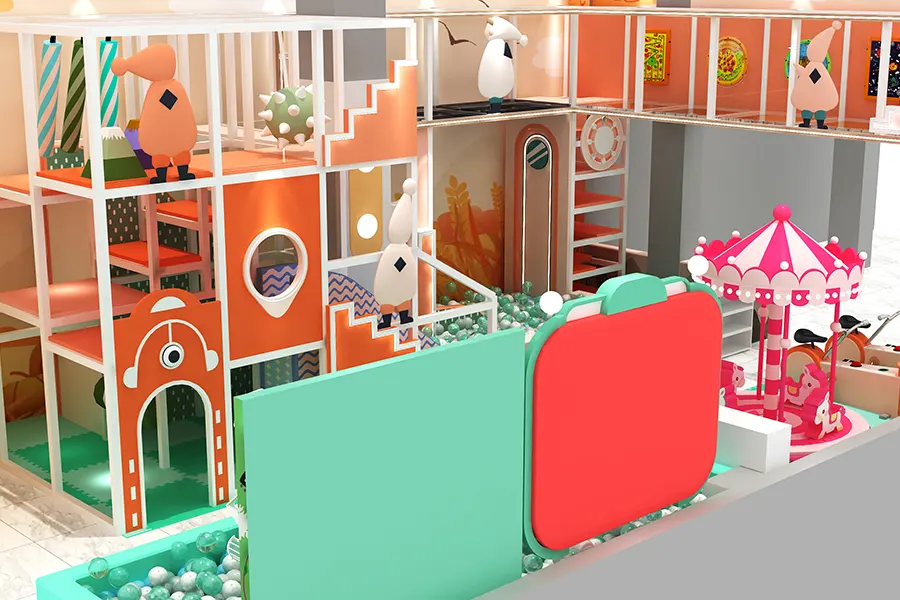
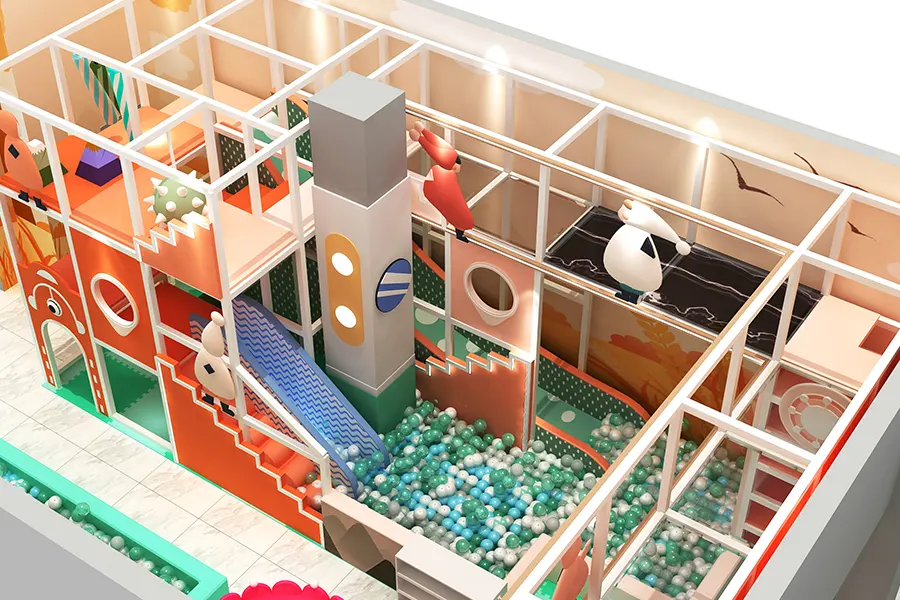
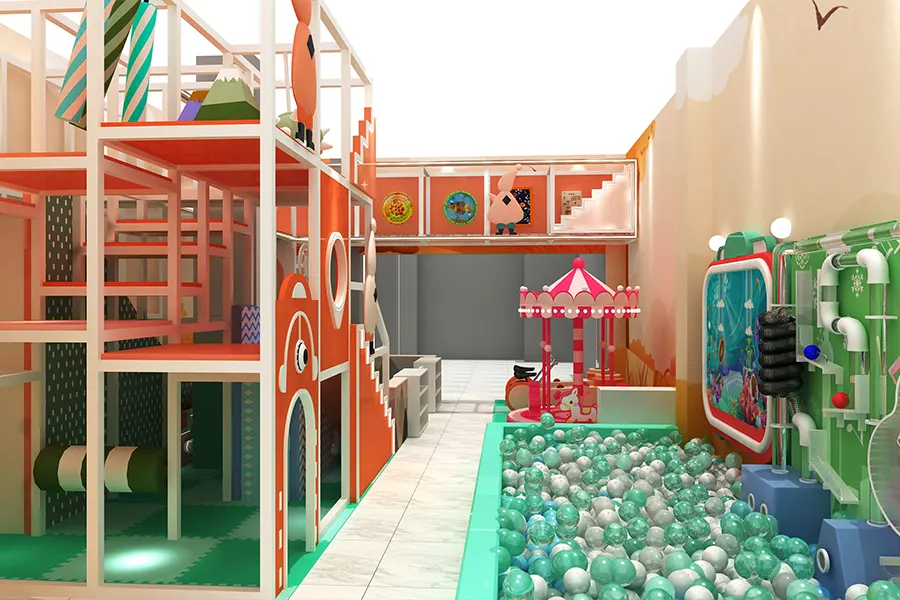
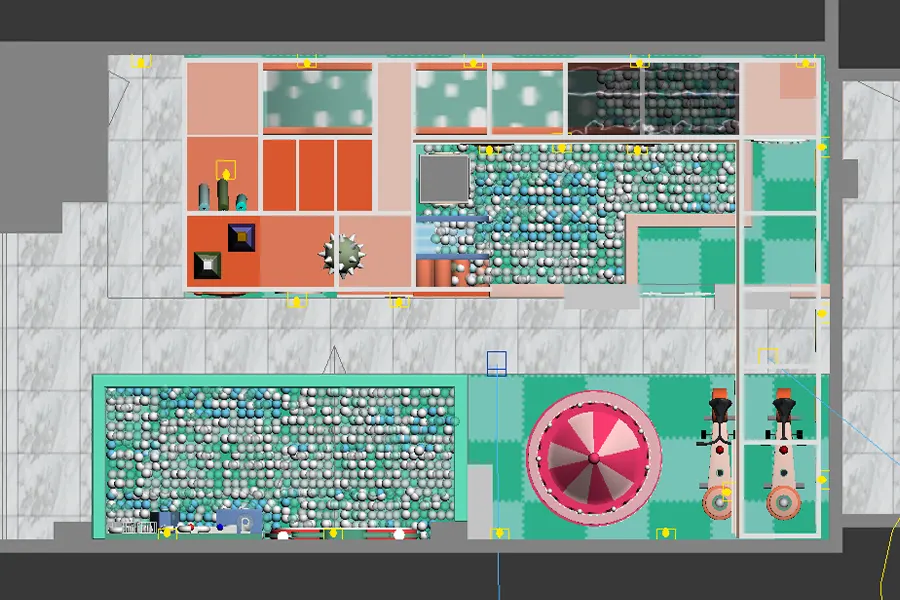
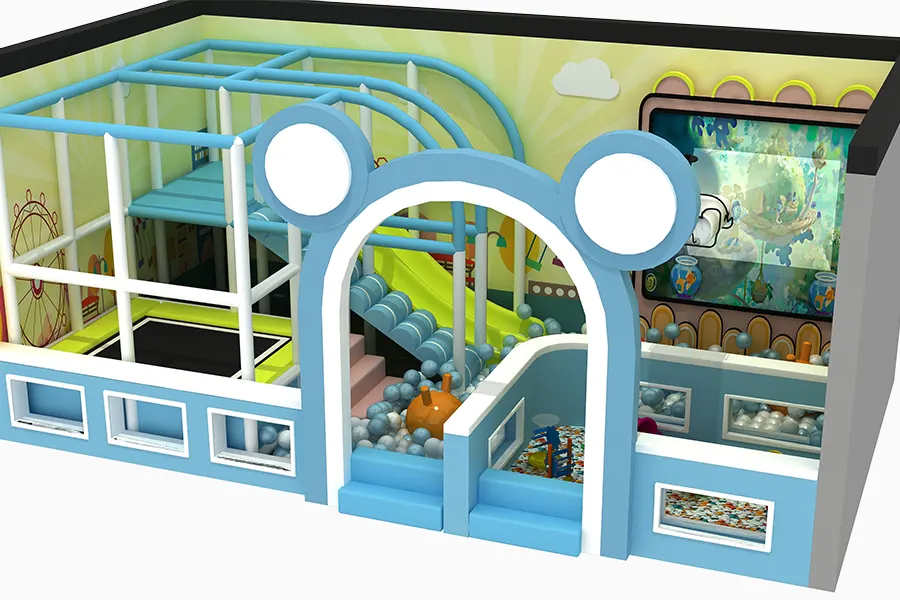

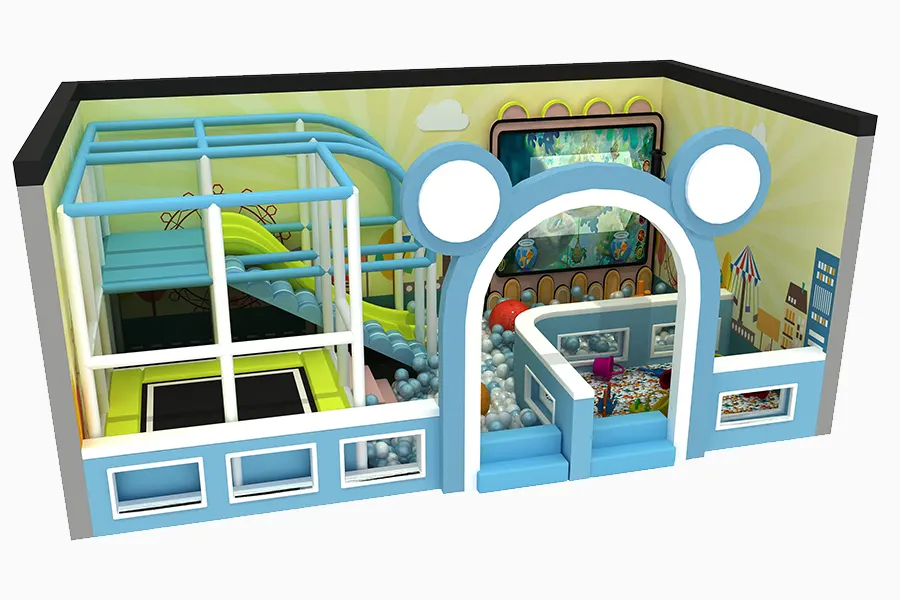
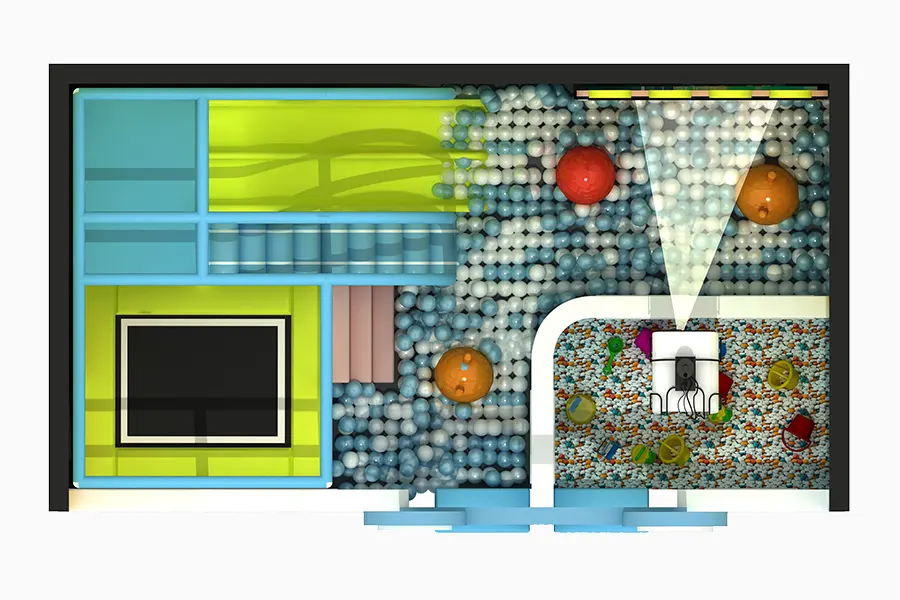
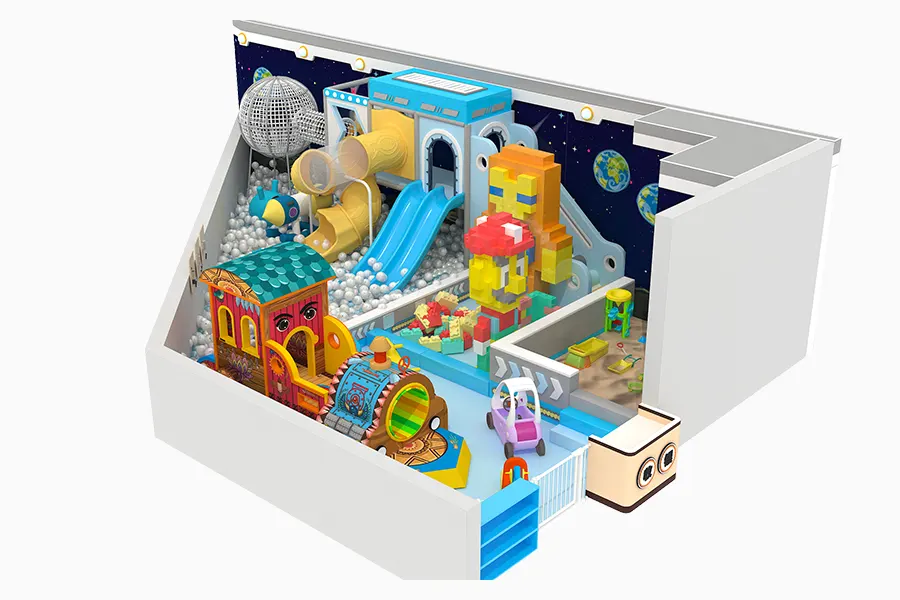

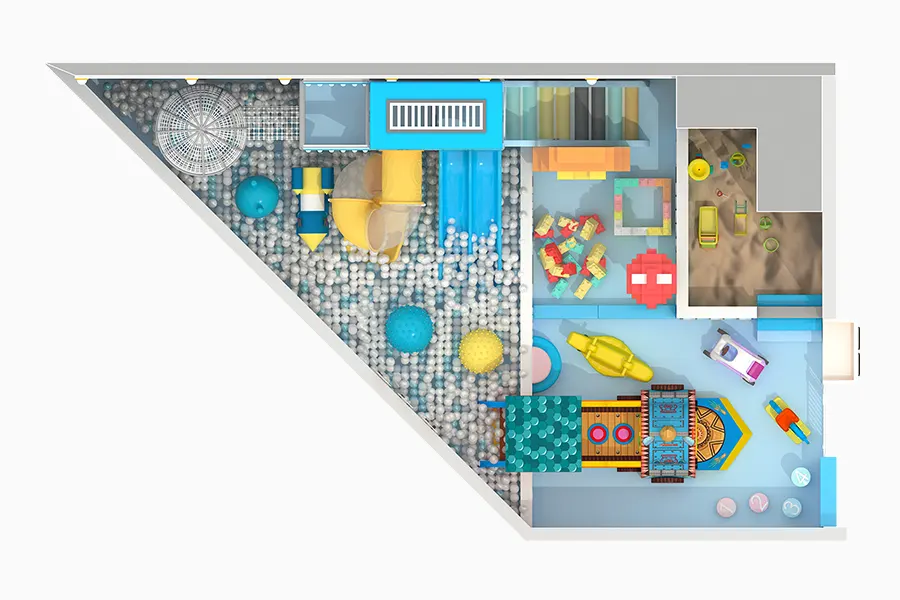
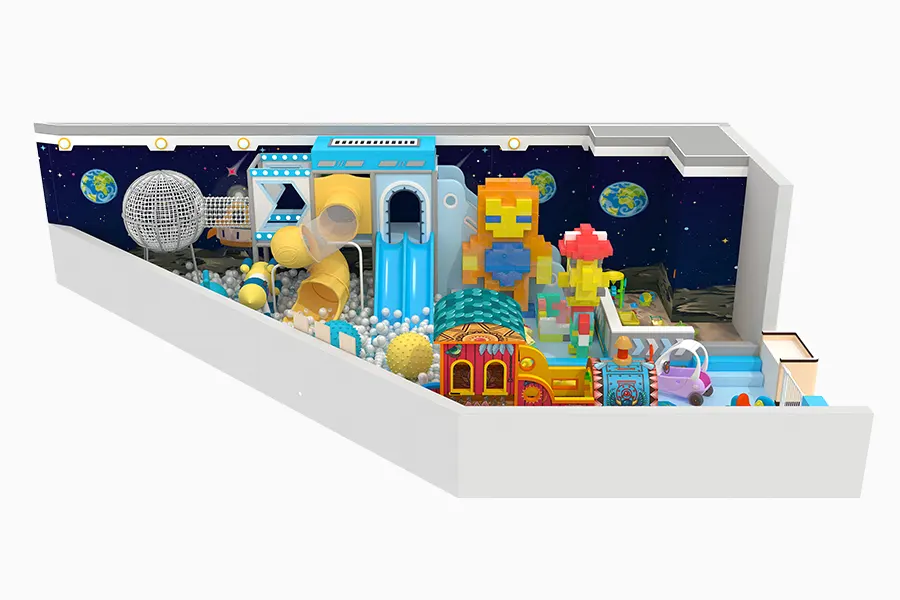
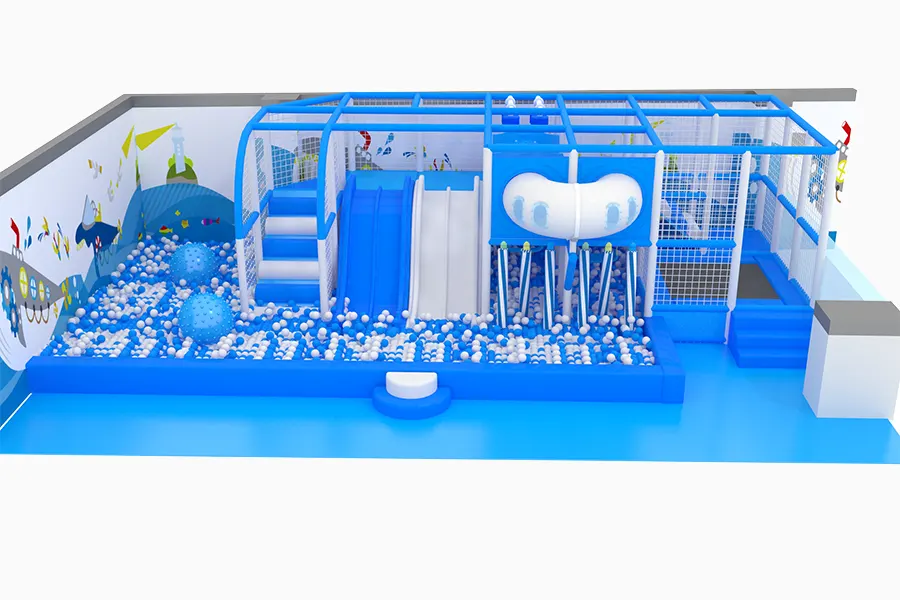

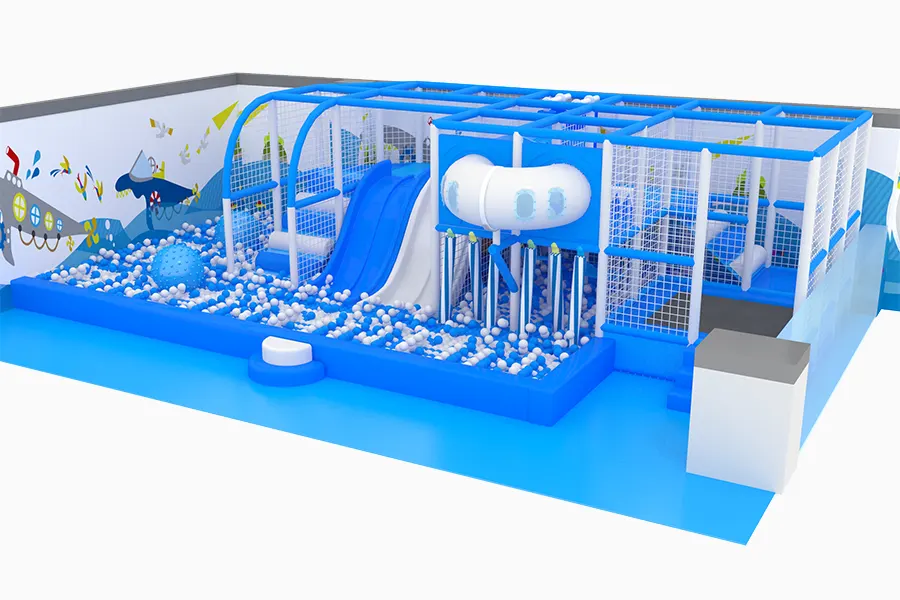
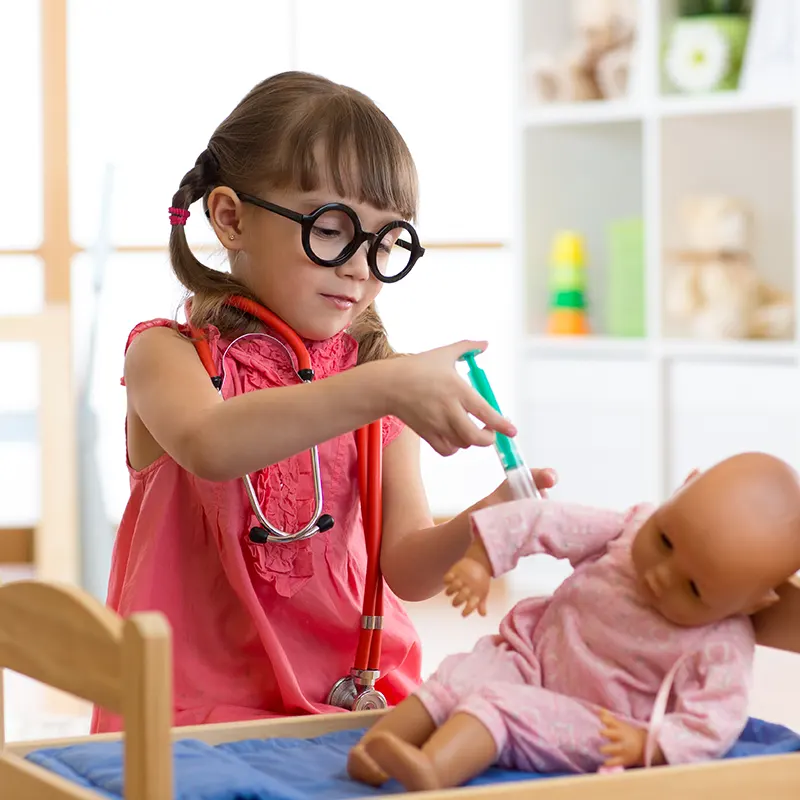
Physical Fitness: Indoor play equipment encourages children and elderly people to engage in physical activities which can help to improve their motor skills, equilíbrio, strength, and flexibility. This can be especially beneficial for those with physical disabilities, as it allows them to engage in gentle and controlled exercises.
Rehabilitation: Indoor play equipment can play a critical role in the physical rehabilitation of patients recovering from illnesses or surgeries. The play equipment can be used to slowly increase their activity level and rebuild their strength.
Mental Well-being: Playing on indoor play equipment can help to improve the mood and reduce stress levels. For children with mental health conditions, the play equipment can provide a therapeutic outlet for their energy. For the elderly, it can help to alleviate symptoms of depression and anxiety.
Social Interaction: Indoor play areas allow for social interaction which can lead to improved communication skills and confidence. For children with developmental disabilities, this can be a great way to practice social skills in a safe and controlled environment.
Cognitive Development: For children, especially those with learning disabilities or cognitive impairments, indoor play equipment allows them to engage in creative play which can help to improve their problem-solving skills, critical thinking, and imagination.
Increases Patient Satisfaction: By providing indoor play equipment, healthcare centers can increase patient satisfaction. This can turn a generally unenjoyable stay into one that’s more enjoyable.
Encourages Independence: Indoor play equipment can help to encourage independence in children and elderly patients, as they can navigate and play on the equipment by themselves. This can help to improve their confidence and self-esteem.
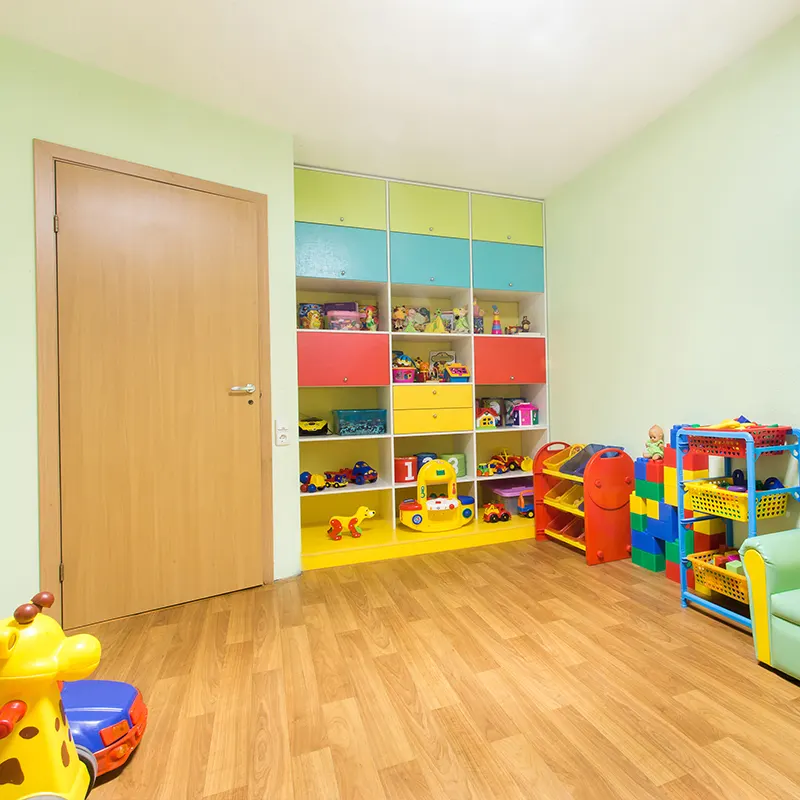
Soft Play Equipment: This includes soft slides, ball pits, climbing structures, and padded floor areas which are suitable for younger children.
Sensory Toys: These are interactive toys designed to stimulate the senses. They can include textured balls, light-up toys, water play tables, and sensory walls. They are particularly beneficial for children with special needs.
Toddler Gym Equipment: Miniature versions of standard gym equipment such as toddler-sized treadmills and stationary bikes can be installed. They encourage exercise and help improve strength and stamina.
Indoor Playground Structures: These are larger structures that include slides, tunnels, bridges, and climbing walls. They provide opportunities for children to run, climb, and explore.
Interactive Floor or Wall Games: These systems project games onto the floor or wall which children can interact with, encouraging movement and group play.
Therapy Swings: These swings are designed to provide a soothing, calming effect for children, especially those with sensory processing disorders or autism.
Music Zone: Instruments, music players, or interactive music installations can help children express themselves, learn about rhythm, and develop coordination skills.
Pretend Play Areas: This can include kitchen sets, dollhouses, doctor’s office setups, etc., for encouraging imaginative play.
*Todas as suas informações são respeitadas & protegido.
*Todas as suas informações são respeitadas & protegido.
*Todas as suas informações são respeitadas & protegido em Beslepark.